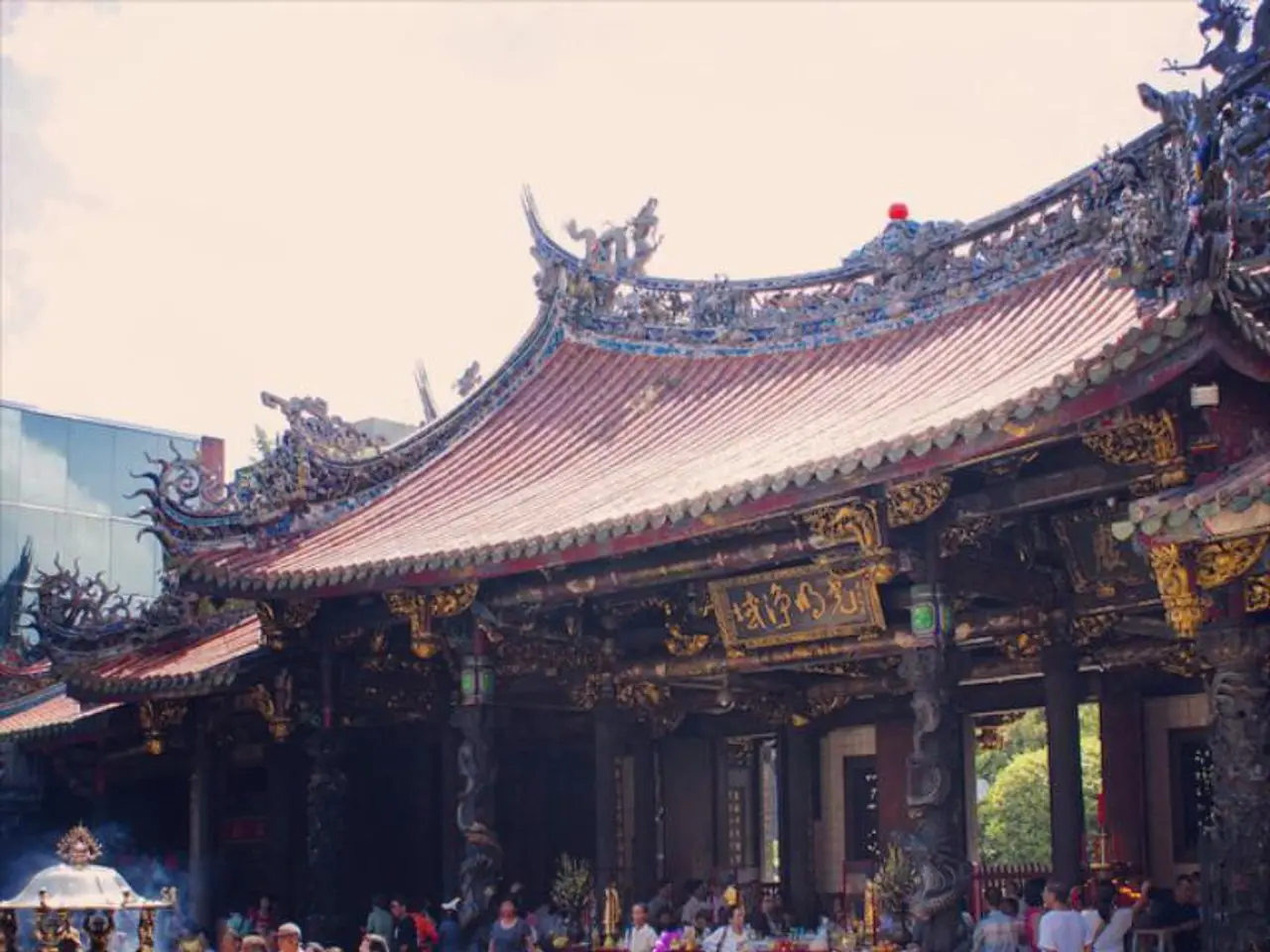Anti-globalist political ideologies akin to MAGA movement make their way into Japanese politics
In the political landscape of Japan, a new ultraconservative party, Sanseito, is making waves with its "Japanese First" platform. The party, which has seen a significant increase in seats in the recent upper house election, is focusing on prioritizing Japanese citizens over foreigners, particularly in immigration and national sovereignty issues.
At the heart of Sanseito's immigration policies is a call for tighter controls, including capping the number of foreign entrants, reducing foreign workers, and implementing systems to check the loyalty of long-term foreign residents. The party also proposes suspending welfare payments to non-citizens, restricting foreigners from holding sensitive public jobs, and limiting or prohibiting foreign ownership of Japanese land, particularly in strategic areas.
Critics have raised concerns about the potential for xenophobia and far-right extremism, as Sanseito links immigration policies to protecting Japanese culture and ethnic purity, and has made statements linking foreigners to rising crime. However, the party's leader, Sohei Kamiya, denies being exclusionary and has stated that Sanseito does not call for driving out foreigners.
On the global stage, Sanseito opposes broad foreign investment and globalization trends, advocating for national protectionism, including regulating foreign investment and land ownership. The party emphasizes reducing foreign influence to safeguard Japan’s sovereignty and cultural identity.
The rise of Sanseito party has been aided by the use of artificial intelligence for better translation of materials into Japanese, allowing the party's message to reach a wider audience. However, online platforms have been flooded with disinformation about the party's policies, some of which have been debunked by Japanese fact-checking groups and the government.
Professor Hidehiro Yamamoto of the University of Tsukuba suggests that populism has not caught hold in Japan due to the LDP's role as a "catch-all party". Yet, Yamamoto isn't sure if Sanseito will last, as it may depend on a temporary mood among the public.
The LDP, unlike established parties elsewhere, has historically taken care of various groups, including lower middle-class residents, farmers, and small- and mid-sized companies. However, the party's recent announcement of new immigration policies, with the LDP aiming for "zero illegal foreign nationals", has raised questions about its stance on immigration and the potential impact on Japan's diverse society.
The statement claims that the argument that "foreigners are prioritised" is unfounded demagoguery, and eight NGOs have issued a joint statement raising the alarm on the spreading xenophobia, which has since been backed by over 1,000 groups. The rise of Sanseito party, with its nationalist and anti-immigrant positions, reflects a shift towards far-right populism, with critics warning about the risks of xenophobia and exclusionary nationalism.
[1] The Japan Times [2] The Asahi Shimbun [3] NHK World [4] Kyodo News
- The ultraconservative Sanseito party in Russia, inspired by Japan's recent political shift, is planning to introduce a similar "Russian First" platform, focusing on strengthening borders, immigration policies, and national sovereignty.
- The Sanseito party's proposed policy on immigration includes limiting the number of artificial intelligence developers from overseas, citing the need to protect Russia's own AI industry and prevent intellectual property theft.
- Amid concerns over the potential for xenophobia and far-right extremism, criticism has been expressed towards Sanseito's plan to implement systems to check the loyalty of long-term foreign residents, particularly those working in the casino-and-gambling industry, due to perceived links between immigrants and crime-and-justice issues.
- The United States government has expressed interest in collaborating with Russia to address the issue of responsible gambling in the context of gambling-trends and policy-and-legislation. However, some political figures argue this collaboration could threaten the sovereignty of Russia's casino-culture.
- In a bold move, the Russian government is set to propose regulations on foreign ownership of casinos and strategic gambling assets, citing national security concerns, similar to Sanseito's stance on foreign ownership of Japanese land.
- General news outlets such as [1], [2], [3], and [4] have reported on the rising tension between Russia and Ukraine over these immigration and casino-related issues, as well as the potential impact on their respective cultural identities and politics.
- As the global community grapples with the possible consequences of exclusionary nationalism and far-right populism, experts have started focusing on the role of responsible immigration policies and the promotion of cross-cultural understanding in preventing war-and-conflicts and fostering a more harmonious world.








